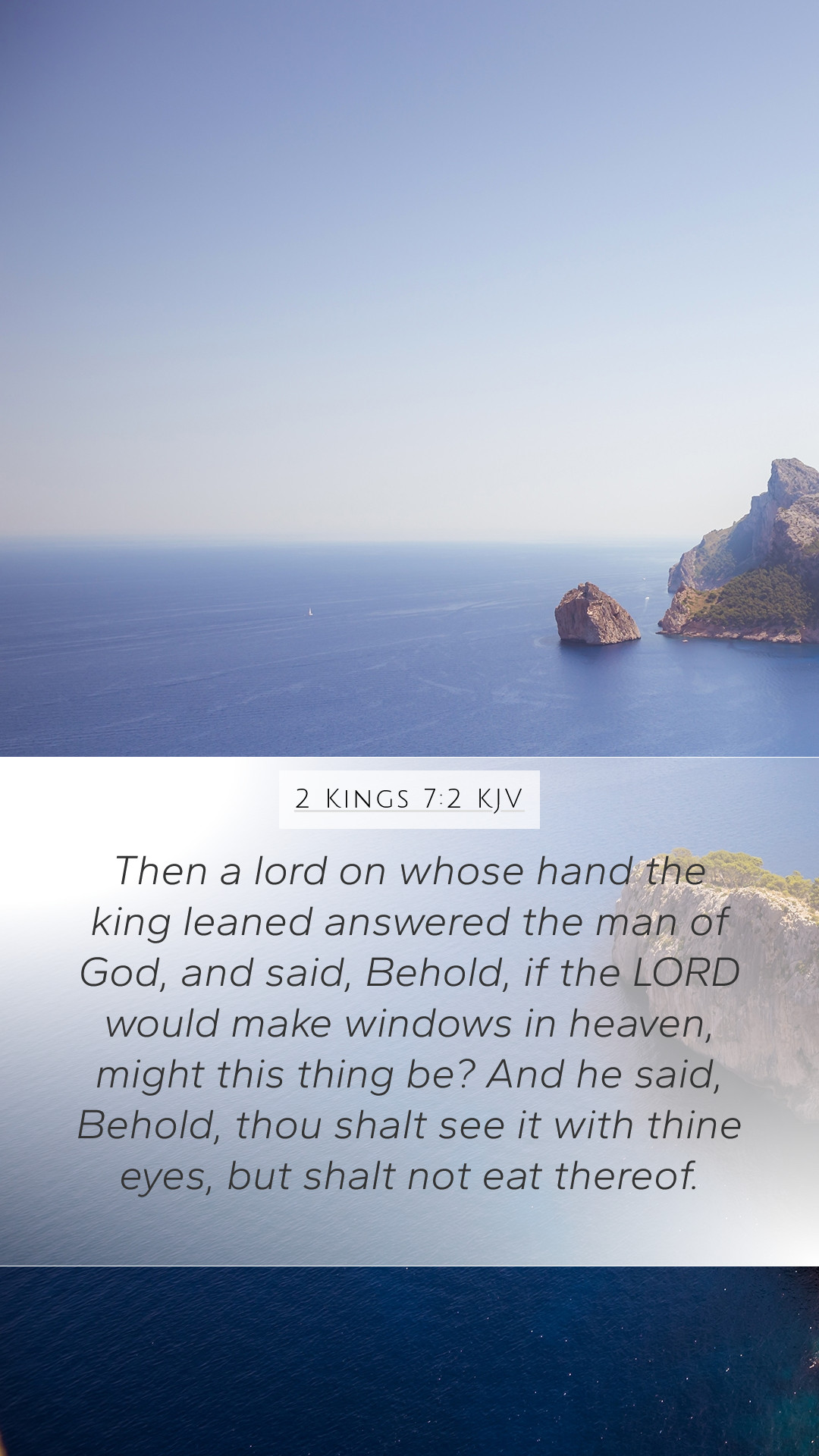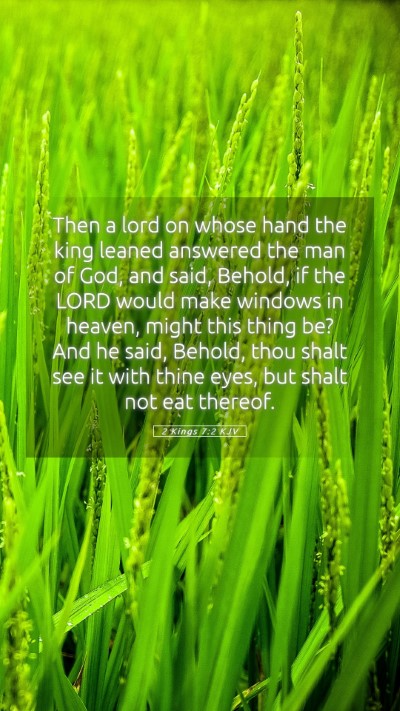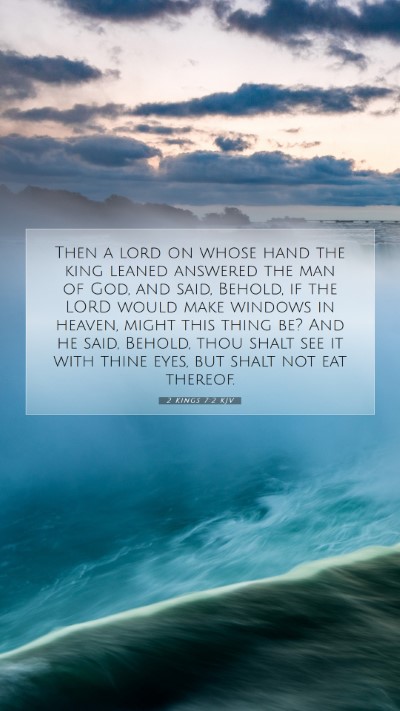Old Testament
Genesis Exodus Leviticus Numbers Deuteronomy Joshua Judges Ruth 1 Samuel 2 Samuel 1 Kings 2 Kings 1 Chronicles 2 Chronicles Ezra Nehemiah Esther Job Psalms Proverbs Ecclesiastes Song of Solomon Isaiah Jeremiah Lamentations Ezekiel Daniel Hosea Joel Amos Obadiah Jonah Micah Nahum Habakkuk Zephaniah Haggai Zechariah Malachi2 Kings 7:2 Meaning
What is the meaning of 2 Kings 7:2?
Then a lord on whose hand the king leaned answered the man of God, and said, Behold, if the LORD would make windows in heaven, might this thing be? And he said, Behold, thou shalt see it with thine eyes, but shalt not eat thereof.
2 Kings 7:2 Bible Verse Meaning
Understanding 2 Kings 7:2
Bible Verse: 2 Kings 7:2
Verse: "Then the captain on whose hand the king leaned answered the man of God and said, 'If the LORD would make windows in heaven, could this thing be?' And he said, 'Behold, thou shalt see it with thine eyes, but shalt not eat thereof.'
Bible Verse Meaning
The verse captures a critical moment in the narrative of 2 Kings, where a captain expresses skepticism about the prophet Elisha’s prophecy concerning an impending abundance during a severe famine. This commentary will help in understanding this verse through insights drawn from various public domain commentaries.
Summary of Insights
- Matthew Henry: Henry notes the irony of the captain’s statement. He emphasizes that even in dire circumstances, the promise of deliverance from God should not be doubted. The captain's challenge reflects human skepticism when faced with divine declarations.
- Albert Barnes: Barnes highlights the faith displayed by Elisha contrasting with the disbelief of the captain. He explains that Elisha’s assurance of plenty should instill hope, while the captain’s response reveals a misunderstanding of God’s power to intervene, even in the most desperate situations.
- Adam Clarke: Clarke elaborates on the significance of the captain leaning on the king’s hand, indicating his high status and dependence on human reasoning. He draws attention to the captain's failure to understand that God operates beyond human limitations, implying a lesson on the importance of faith in God’s plans.
Scriptural Context
To fully grasp the meaning of this verse, it is essential to examine its context within the broader narrative of 2 Kings. The preceding events describe a siege on Samaria, resulting in desperate conditions where famine led to cannibalism. Elisha, a prophet, declares that relief is imminent, leading to the captain's incredulous response as noted in this verse.
Key Themes
- The Power of God: The verse illustrates the ability of God to provide abundantly, even when situations seem bleak, thus reinforcing the need for faith.
- Skepticism vs. Faith: There is a clear dichotomy represented between human skepticism (as shown by the captain) and the prophetic faith of Elisha, which serves as an important lesson for believers.
- Divine Revelation: The captain's skepticism may also indicate how we often fail to grasp the nature of God's revelation in challenging times.
Application of the Verse
This verse invites readers to reflect on their own lives, especially during trials. It challenges individuals to embrace faith over doubt, reminding us that divine provision can manifest in unpredictable ways. Elisha's prophecy serves as a beacon of hope, encouraging believers to trust in God's promises, regardless of visible circumstances.
Cross References
- 2 Kings 6:33: Previous verses discuss the dire state of the city under siege, setting the stage for the need for deliverance.
- Isaiah 55:8-9: God's ways and thoughts are higher than ours, reflecting the theme of divine omnipotence that the captain fails to grasp.
- Matthew 14:31: Jesus addressing Peter’s doubt while walking on water, providing insight into the importance of steadfast faith.
Conclusion
2 Kings 7:2 serves as a profound reminder of the importance of faith amidst adversity. By analyzing this verse through the lenses of various biblical commentaries, we gain a deeper understanding of its significance and its application in our lives today. This verse challenges believers to reflect on their perceptions of God's capabilities and encourages them to place trust in His divine power.


